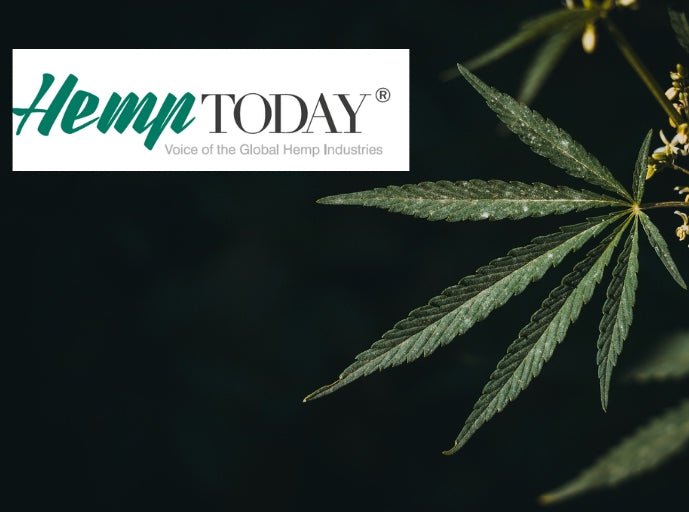The Buckeye State is just the latest to go on the attack against the intoxicating hemp cannabinoids.

George Santayana, the late 19th and early 20th-century philosopher, poet, and novelist, once famously quipped, “Those who do not learn from history are doomed to repeat it.” It is doubtful that he is the first deep thinker to make this painfully accurate and rarely adhered-to axiom. The most infamous example of a great military leader failing to learn from the lessons of history is Adolf Hitler’s ill-advised and catastrophic invasion of Russia in 1941.
A little over a century earlier, Napoleon Bonaparte, the enigmatic and ruthless dictator of the then-powerful French empire, attempted the same maneuver with equally horrendous results. In the estimation of most historians, that one military blunder led to the downfall of Bonaparte and the Third Reich. Ultimately, the two men’s arrogance and ignorance thankfully spared the world from their vile and destructive wrath.
Generally, however, when individuals, organizations, or countries fail to learn from the teachings of history, the result is not very beneficial for the parties involved. In the case of hemp and cannabis, it would greatly benefit many lawmakers, policymakers, business leaders, and consumers to look back and embrace the lessons learned from the failed prohibition of alcohol during the 1920s and early 1930s.
This blog entry does not have enough time or space to detail the errors made and the fundamental flaws associated with the failed legal, economic, and societal experiment. However, the main takeaway from the experience for many sociologists and psychologists is that it is exceptionally challenging to legislate and enforce the personal conduct of individuals seeking the physical, emotional, and mental release provided by items like alcohol, tobacco, caffeine, sugar, and now cannabis and hemp.
Put in simpler terms, “Where there is a will, there is a way.”
A decade has passed since the first states of Colorado and Washington legalized adult-use cannabis. Since then, an additional 22 states have joined the movement to end prohibition and legalize the misunderstood and much-maligned plant. The latest to join that group is Ohio, where, this past November, voters in that state passed a ballot initiative legalizing recreational marijuana cultivation, distribution, sale, and consumption.
As with most states that pass cannabis reform legislation, there is a brief period of euphoria for supporters of the measure, and then the inevitable backlash from politicians and opposing interest groups begins in an attempt to erode the impact and effectiveness of the legalization effort.
Unfortunately, Ohio appears to be falling prey to the same sabotaging demons plaguing legal cannabis and hemp markets across the country. According to multiple media outlets, Ohio Governor Mike DeWine (R) and several key GOP state lawmakers are determined to slow down, hobble, and restrict the state’s newly legal adult-use cannabis market before it even gets off the ground.
Less than a week after Ohio voters overwhelmingly approved Issue 2, legalizing adult-use cannabis, DeWine called on state lawmakers to amend and adjust specific provisions contained within the measure. And because it is a citizen-backed initiative, Ohio lawmakers are lawfully permitted to make changes to the law.
At the time, Governor DeWine said, "My recommendation to the General Assembly is that they take action to make sure that both rights are protected. People have a right to smoke it. People have a right to consume it. But also that everybody else who doesn't choose to do so is also protected with their rights as well."
"My recommendation to the General Assembly is that they take action to make sure that both rights are protected. People have a right to smoke it. People have a right to consume it. But also that everybody else who doesn't choose to do so is also protected with their rights as well."
- Ohio Governor Mike DeWine (R)
Now, along with his aggressive intentions to derail the cannabis legalization effort on the part of voters, DeWine is also taking aim at the favorite “problem child” of the hemp/cannabis industry - Intoxicating Hemp Derivatives or IHDs.
During a news conference this past Friday on a completely unrelated piece of legislation, the governor abruptly pivoted to the issue of “intoxicating hemp” products, most notably delta-8 THC. Instead of developing a consistent and effective set of regulations for the wildly popular and highly lucrative market sector ($28.4 Billion in revenues for 2023), DeWine wants to ban the sale of any intoxicating hemp products completely.
“It is intoxicating, it is something that needs to be banned, and again, the legislature could ban it. These hemp products can be sold anywhere in the state of Ohio, and we have no jurisdiction, we have no laws to prohibit that, we can do absolutely nothing,” DeWine said.
"It is intoxicating, it is something that needs to be banned, and again, the legislature could ban it. These hemp products can be sold anywhere in the state of Ohio, and we have no jurisdiction, we have no laws to prohibit that, we can do absolutely nothing.”
- Ohio Governor Mike DeWine (R)
To many legal experts and Ohio State House observers, DeWine appears to be using hemp as a convenient punching bag for his unsuccessful attempts to place a stranglehold on the legal cannabis market. Citing and inflaming unfounded fears over fentanyl-laced marijuana and other wildly bizarre conspiracy theories, hemp advocates view the governor’s attacks on IHDs as almost cliche at this point.
To appease the governor and possibly gain additional political points from both sides of the issue, State Senator Stephen Huffman (R) is currently crafting a bill to establish regulatory guidelines for IHDs based on similar language in his proposal to regulate marijuana.
Ever the political animal and pragmatist, Huffman says he wants to ensure that the measure is balanced by the concerns of the state’s hemp retailers, who say that a too restrictive bill could harm the industry.
“There are some really good CBD products out there, but there (are) others that are manufactured in a way that (is) intoxicating and not safe,” Huffman said in an interview with Statehouse News Bureau.
"There are some really good CBD products out there, but there (are) others that are manufactured in a way that (is) intoxicating and not safe.”
- Ohio State Senator Stephen Huffman (R)
Ultimately, both the bill to weaken and severely restrict cannabis and the effort to ban IHDs could come back to bite DeWine and his cadre of anti-cannabis and anti-hemp drones, much like the Russian winter gave severe and deadly frostbite to French and German soldiers during both countries ill-fated campaigns against Mother Russia.
The evolutionary development of a species, a nation, and a movement always has a set of “winners” and “losers.” History is littered with those individuals who maintained a death grip on the past or a position that was no longer valid or tenable.
The American people want intoxicating hemp and cannabis products. The scientific evidence is overwhelmingly in support of legalization for the entire cannabis sativa plant. Likewise, the potential economic impact of a fully legal and regulated cannabis and hemp industry is substantial. Even with all of the negative press and political attacks, hemp and cannabis continue to rise and persevere.
The past is a gift given to us by our ancestors to learn from and grow. We must take those lessons and apply them to our hopefully brighter and more abundant futures. Governor DeWine and his cronies would do well to take heed of George Santayana’s wise words.
History is telling us what to do when it comes to hemp and cannabis. It is up to our leaders and us to make sure we don’t end up like those poor frozen soldiers in Russia all those terrible years ago.








































